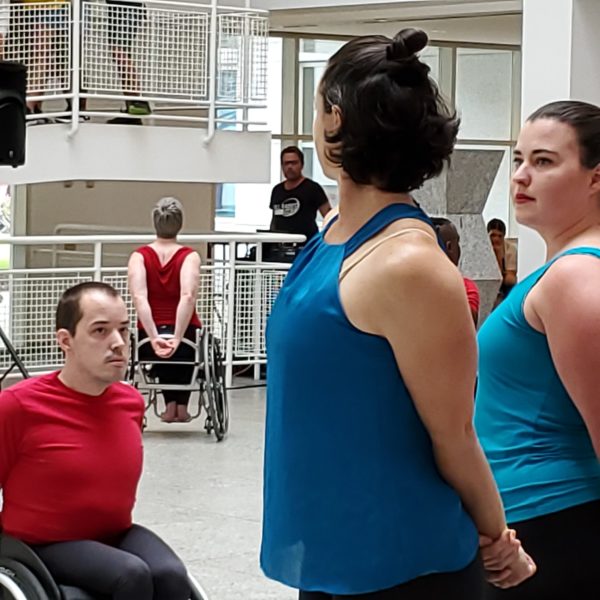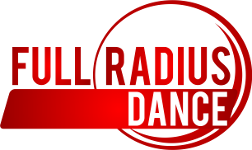The Art of Disability
Overview
Invite Full Radius Dance to your sensory-friendly museum event or gallery featuring a new or existing exhibition. Become a collaborator and/or a partner location for The Art of Disability!
The Art of Disability is a new way to experience a gallery setting through a disability-centric lens: artworks created by artists with disabilities; that depict disability; or that can be interpreted through a experience of disability. In consultation with the curator, education manager, or another invested individual, we'll look through the exhibition and determine which artworks fit into this criterion. Our dancers will use these to create original choreography premiered within the gallery space. Become a collaborator and/or partner for The Art of Disability!
Accessibility Requests
Full Radius Dance will always have an ASL interpreter at an Art of Disability location. If you require another accommodation to participate in the program, please note it in your registration or contact us at [email protected] two weeks in advance. If it is less than two weeks, please reach out to us in order to discuss a solution.

History
Benjamin Reiss, a Samuel Candler Dobbs professor and department chair at Emory who is a leader in the university’s Disability Studies Initiative, notes that people with disabilities can experience a museum exhibition much differently: “People with visual impairments, people who are deaf, people who move in wheelchairs, who are short in stature or who have distinctive cognitive functioning have different experiences of the artworks that are on display in a museum — and at times this can reveal new insights about the works themselves.”
The Art of Disability project was created by Douglas Scott in 2019. Full Radius Dance partnered with the Disability Studies Initiative of Emory University to conduct extensive research into the High Museum of Art's permanent collection. Together, we identified thirteen disability-centric artworks. Full Radius Dance chose four of those to inform a new dance which premiered at the High’s Second Sunday on July 14, 2019. The artworks: a jar by David Drake, an artist with a disability; Minotaurus by Nandipha Mntambo, which challenges preconceptions of the human body; a stainless steel sculpture by Anish Kapoor that expresses different ways to experience the world; and an oil painting by Jean-Michel Basquiat of a body that does not adhere to societal stereotypes of “normal.”
